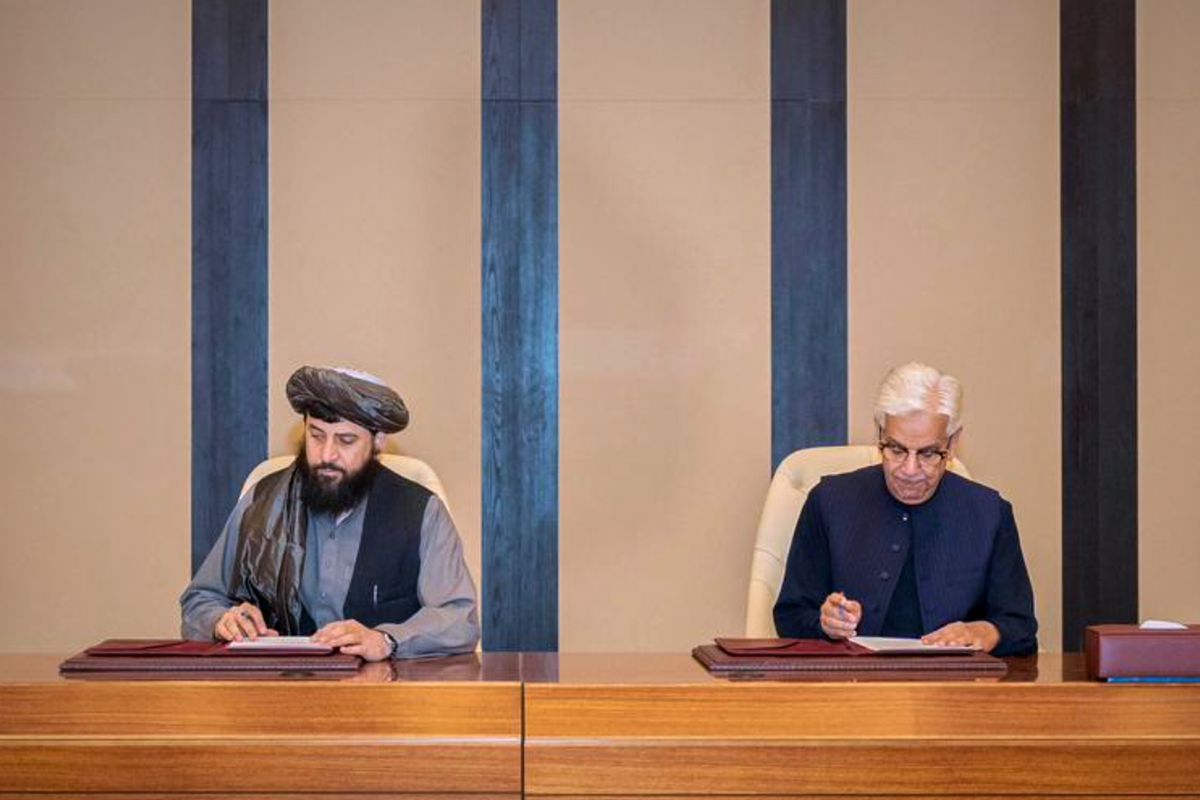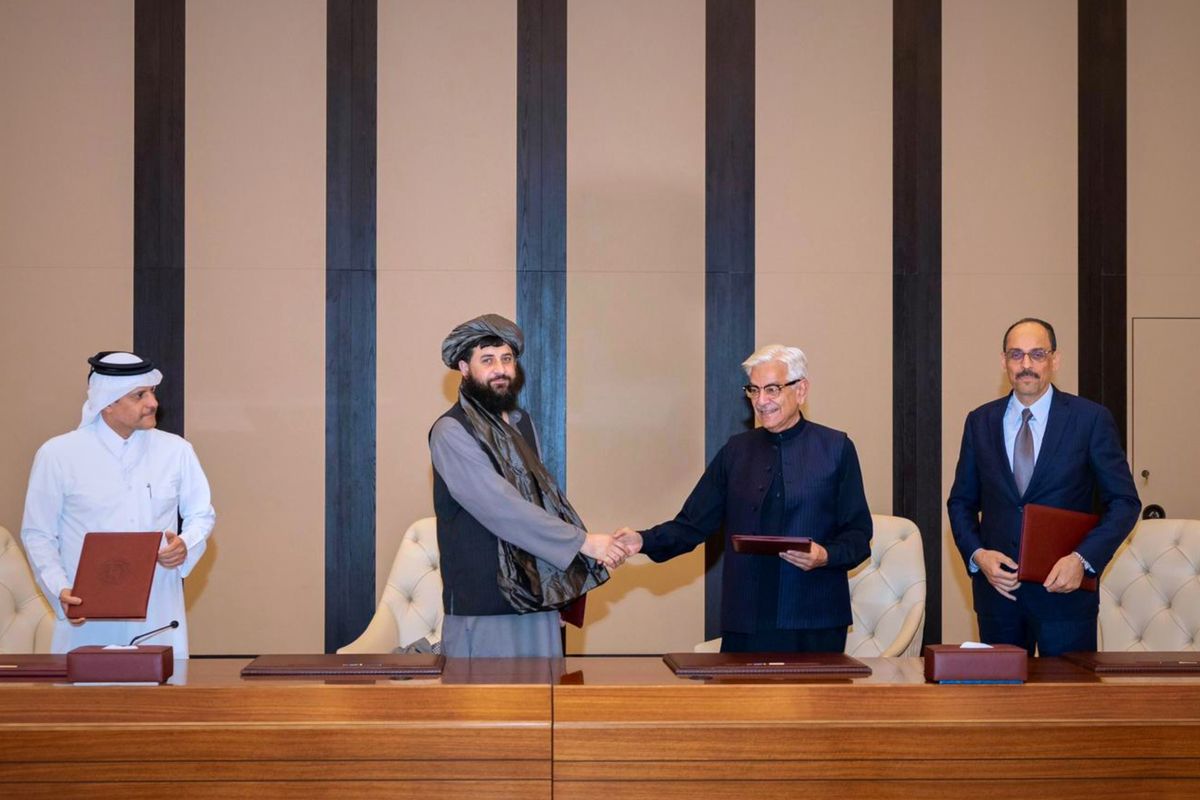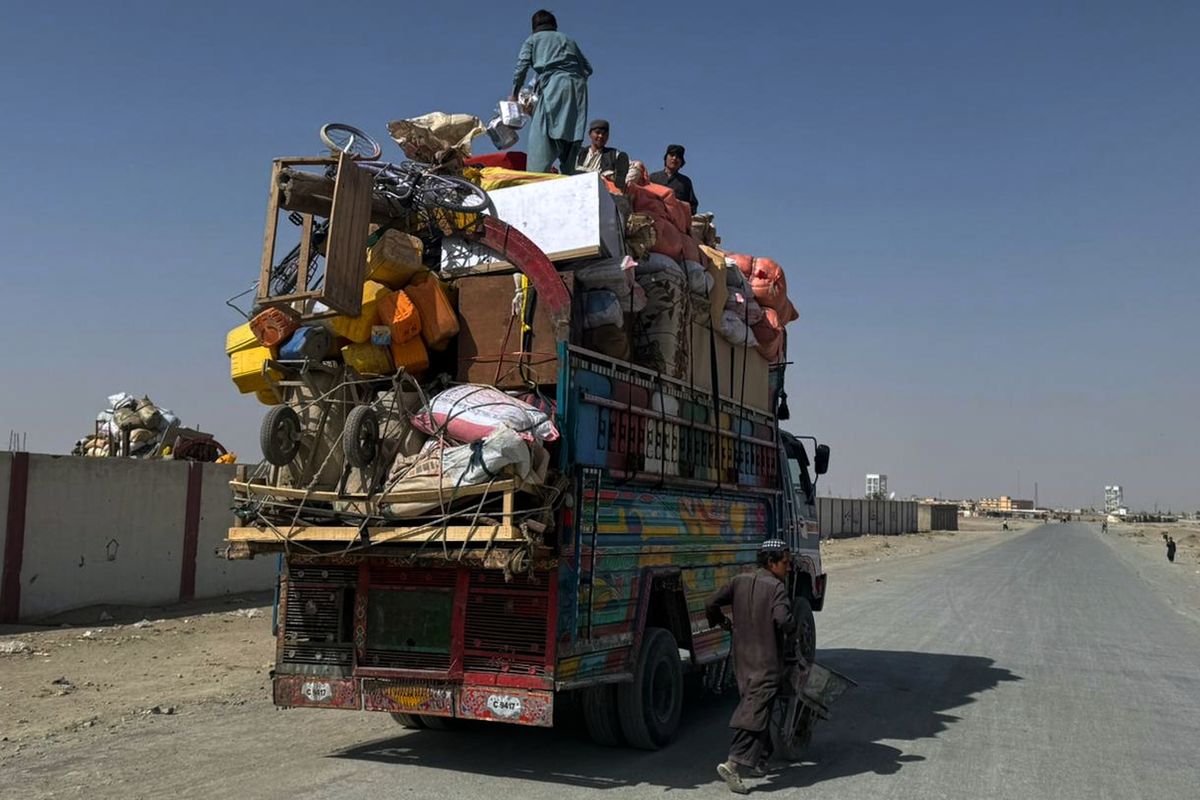ISLAMABAD (AP) — Afghanistan and Pakistan, embroiled in fighting that has killed dozens of people and injured hundreds, pledged on Sunday to respect a ceasefire.
The truce, mediated by Qatar and Turkey, came into effect immediately and is intended to pause hostilities.
Violence has escalated between the neighbors since earlier this month, with each country saying they were responding to aggression from the other. Afghanistan denies harboring militants who carry out attacks in border areas.
Pakistan is grappling with militancy that has surged since 2021, when the Taliban seized control of Afghanistan and returned to power.
The Taliban government’s chief spokesman, Zabihullah Mujahid, gave a positive response to the outcome of the talks that took place in the Qatari capital, Doha, a day earlier. He said both countries had signed a bilateral agreement.
“It has been decided that neither country will undertake any hostile actions against the other, nor will they support groups carrying out attacks against Pakistan. Both sides will refrain from targeting each other’s security forces, civilians or critical infrastructure.”
A mechanism would be established in the future, “under the mediation of intermediary countries,” to review bilateral claims and ensure the effective implementation of this agreement.
Later, during an online news conference, Defense Minister Muhammad Yaqoob told journalists that the Doha talks lasted 13 hours.
Pakistani Defense Minister Khawaja Asif posted confirmation of the deal on X.
“Cross-border terrorism from Afghan territory will cease immediately,” Asif wrote. “Both countries will respect each other’s sovereignty and territorial integrity. A follow-up meeting between the delegations is scheduled to take place in Istanbul on October 25 to discuss the matters in detail.”
Top officials from both countries thanked Qatar and Turkey for their role in facilitating the talks that led to the ceasefire.
The fighting between Afghanistan and Pakistan has severely disrupted people’s lives. The two countries share a 2,611-kilometer (1,622-mile) long border known as the Durand Line, which Afghanistan has never recognized. They have just two main trade routes.
Worsening security has forced locals to leave their homes and also left thousands of people and vehicles stranded for a week at border points.
The Chaman crossing in southwest Pakistan is only open for Afghan refugees to leave as part of a nationwide crackdown on foreigners living in Pakistan illegally. Entry from Afghanistan, including trade and pedestrian movement, remains suspended.
Shafiullah Khan, an Afghan refugee trying to leave Pakistan, had been stuck at Chaman for three days.
“We are so happy for this peace agreement,” said Khan. “The refugees were suffering a lot, but now, after this agreement, we are happy and are going back to our country.”
Less happy was businessman Hazarat Bilal Umaid, whose trade depends on an open border between Afghanistan and Pakistan.
“People were afraid and worried about how to save their livelihoods,” he said. “Now our request to both governments is to open the gate for trade as soon as possible.”
The Torkham crossing, which straddles Pakistan’s northwest and Afghanistan’s east, is completely closed.
——
Associated Press writers Abdul Qahar Afghan in Jalalabad, Afghanistan, Sajjad Tarakzai in Islamabad and Abdul Sattar in Quetta, Pakistan, contributed to this report.
By RIAZAT BUTT
Associated Press




